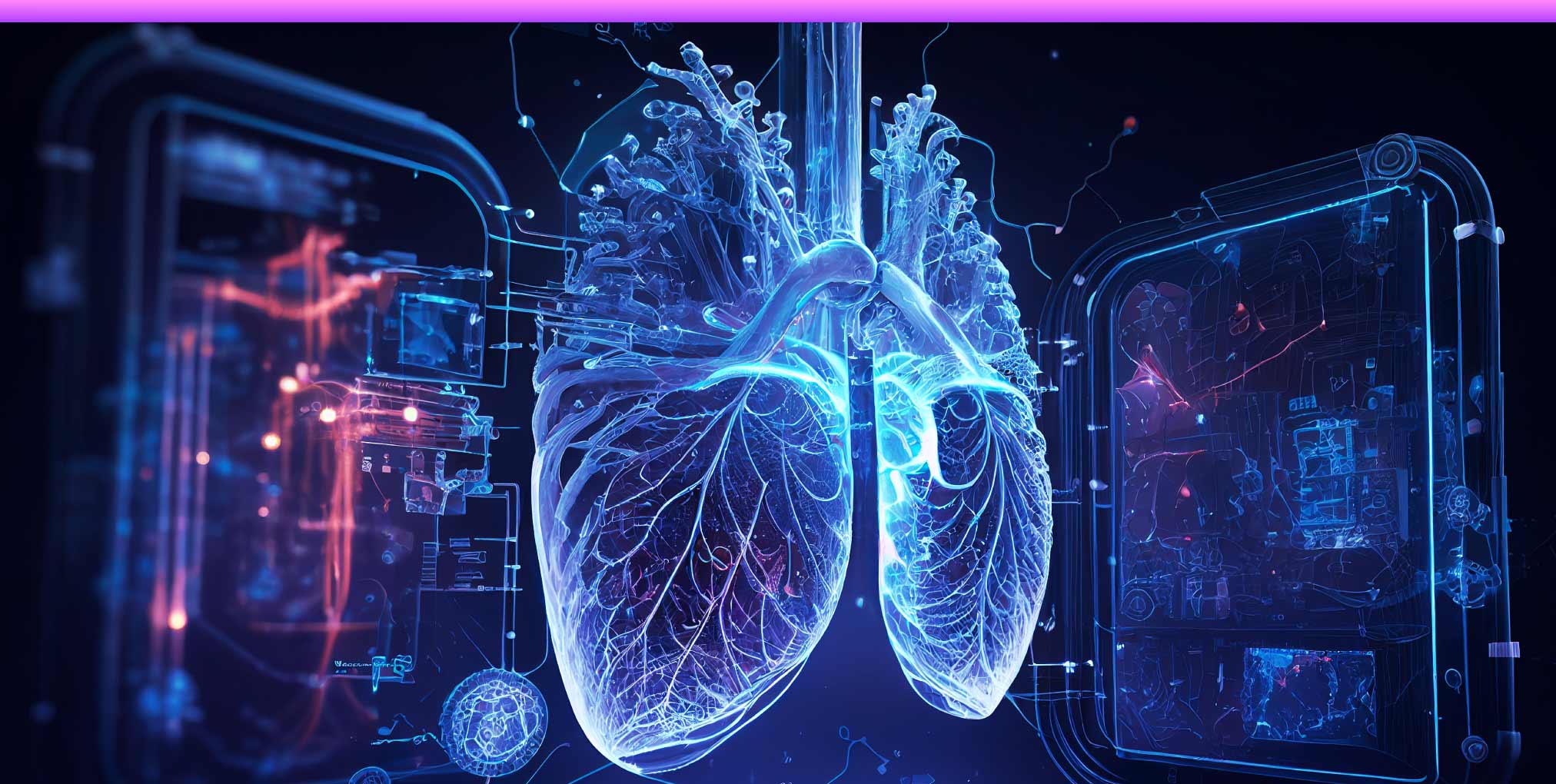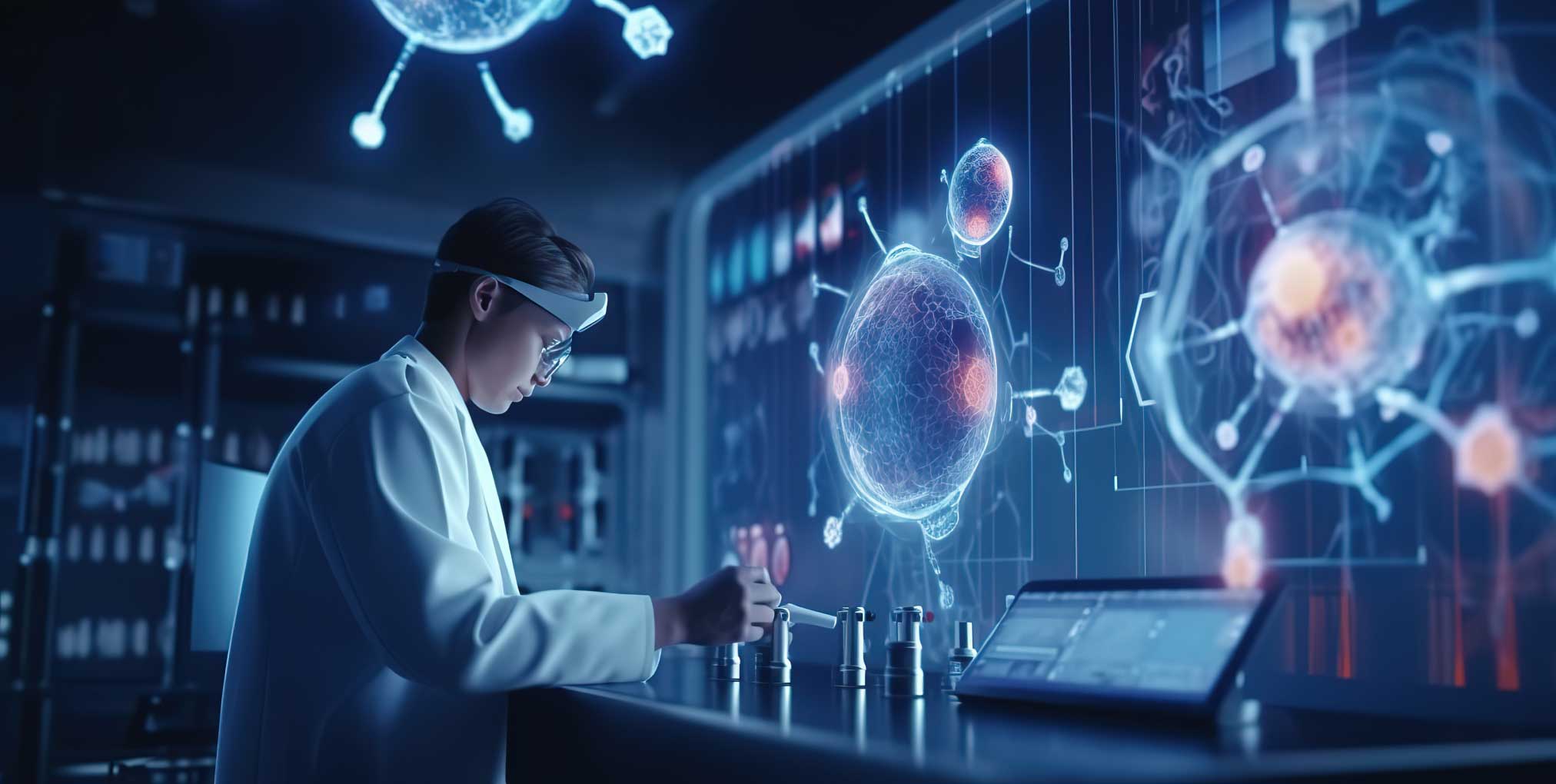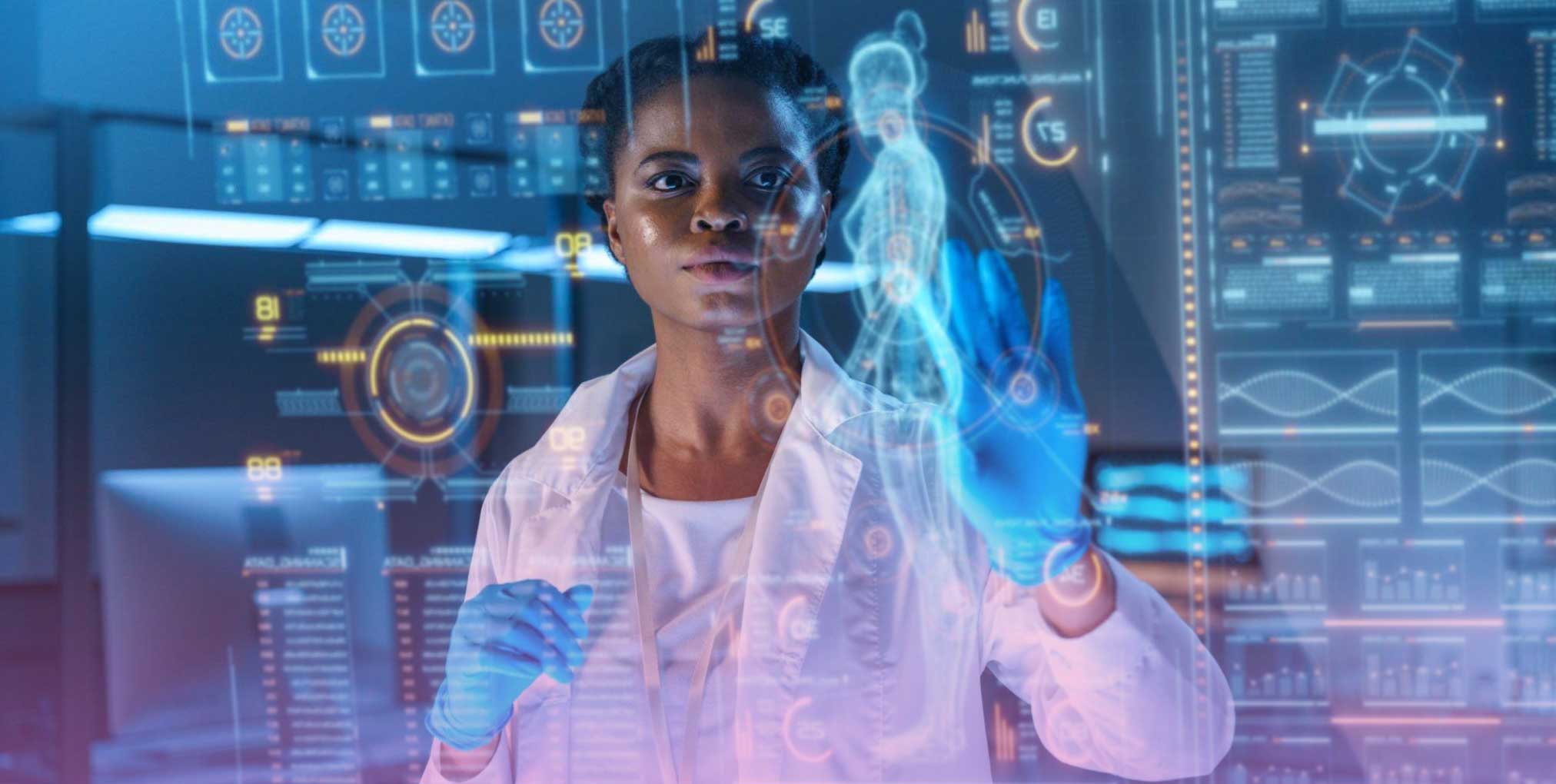

March 12, 2024
What is the role of Generative AI in drug discovery?
This is the age of artificial intelligence, and we are living in it. The innovations of AI are reshaping every aspect of human lives. It has an impact not only on individuals but also on industries.
Healthcare is one of the industries that have had an immense impact from AI technologies. The role of generative AI in drug discovery and development is revolutionary. Many of you might be questioning yourself at this point about what generative AI is and how it is revolutionizing drug discovery.
Today, we will be discussing the concept of generative AI, its role in drug discovery, and some challenges of implementing it.
What is Generative AI?
Generative AI is a sub-branch of artificial intelligence with the ability to generate various types of new content. It includes high-quality images, videos, texts, code, simulations, etc. AI systems learn from the existing data by leveraging techniques like deep learning, reinforcement learning, etc.
Generative AI has been instrumental in transforming the ways of discovering new drugs in healthcare. Traditional methods are costly and require a lot of time, but with it on your side, discovering new drugs becomes more accurate, cost-effective, and requires little time.
The significance of gen AI in healthcare becomes evident from a report by Precedence Research that shows the market of generative AI in drug discovery was $160.59 million in 2023 and will reach $1417 million by 2032.
What are Generative AI techniques for drug discovery?

Generative AI drug discovery techniques aid in generating molecular structures. Here are some of the key techniques for AI-driven drug discovery:
1: Generative Adversarial Networks (GANs)
Generative Adversarial Networks consist of two neural networks. One is a generator, and the other is a discriminator. As the name suggests, the job of the generator is to create new synthetical data. On the other hand, discriminators separate the real data from the generated data. They are trained in a competitive manner so they can improve over time.
In drug discovery, the generator builds molecular structures while the discriminator network evaluates their authenticity. It results in the generation of realistic and novel molecules.
2: Reinforcement Learning
Reinforcement learning is another generative AI in drug discovery technique in which the model learns by interacting with the environment. It works on a reward-punishment paradigm where the agent learns from the feedback and takes suitable actions that will lead to achieving final outcomes.
In drug discovery, it is used to train a model that helps to optimize molecular structures based on desired properties.
3: Natural Language Processing (NLP)
Natural Language Processing is a generative AI drug discovery technique that helps to extract and understand information from textual data. It helps in target identification, drug repurposing, and knowledge extraction to speed up the drug discovery process.
Natural language processing enables researchers to get valuable insights from the textual data that will aid in advancing pharmaceutical research and enhancing patient outcomes.
Role of Generative AI in Drug Discovery

Generative AI drug discovery can revolutionize the medical sector. It helps to generate new molecules and optimize the existing ones to save time and cost. Generative AI in drug discovery benefits are:
1: Rapid Molecule Generation
Generative AI makes it easier and quicker to generate novel chemical structures. It considers essential factors like chemical viability, how well they bind to specific biological targets, and their toxicity profiles. AI enables the selection of promising compounds for further experimental research. It significantly reduces the time and cost that comes with traditional testing methods to develop new drugs with improved efficiency.
Real-world Example
Insilico medicine utilizing generative AI has developed a molecule, ISM6331. The role of this molecule is to stop the progression of tumors by inhibiting TEAD proteins. It is effective at low doses and safe, according to preclinical studies.
2: Virtual Screening
Virtual screening is another aspect that is influenced by generative AI in drug discovery. It allows researchers to analyze how molecules interact with the protein targets and find the potential drug candidates rather quickly. It eliminates the need for physical processes, significantly reduces the cost, and saves time. Moreover, it increases the likelihood of discovering impactful and powerful compounds deserving of further development and experimental validation.
Real-world Example
Atomwise project about AI molecule screening significantly speeds up the drug discovery and generation process. They successfully identified molecules that act as an inhibitor to the Ebola virus. It substantially reduces the time required for drug discovery by eliminating the need for time-consuming laboratory tests.
3: Compound Library Expansion
Compound library expansion exemplifies the massive role of generative AI in drug discovery. It revolutionizes drug discovery by suggesting modifications to known compounds, enhancing their efficacy and safety. It diversifies compound libraries by leveraging machine learning and analyzing molecular structures. Researchers can then synthesize and test these variations, which helps to save time and resources. This iterative process continually refines the library and accelerates the discovery of effective treatments.
Real-world Example
Aptuit has claimed that they utilize generative AI to expand compound libraries for drug discovery. These companies have generated hundreds of compounds with enhanced properties by analyzing and modifying the existing molecules.
4: Offer Personalized Treatment
Generative AI aids in developing personalized medicines by taking into account individual patient characteristics. It aids in developing drugs that are more efficient and with no side effects. Moreover, if there is any disease with limited data available, generative AI assists by providing invaluable insights from the limited data.
Real-world Example
MIT researchers developed a new antibiotic using generative AI that can kill a drug-resistant bacterium that leads to over 10000 deaths in the US every year. It indicates that gen AI in healthcare can be used to generate novel molecules or compounds to provide a tailored solution.
5: Biomarker Discovery
A crucial role of generative AI in drug discovery is biomarker discovery. AI models can analyze vast datasets. By doing so, it uncovers promising biomarkers linked to various diseases. It plays a pivotal role in refining diagnostic precision and pinpointing targets for drug innovation. It significantly accelerates the creation of tailored therapeutic solutions.
Real-world Example
Insilico Medicine developed an AI tool named PandaOmics for target identification and biomarker discovery. It works on The IPanda algorithm. Researchers used it to identify biomarkers for diseases like androgenic alopecia and gallbladder cancer.
6: De Novo Drug Design
De Novo Drug design means the discovery of new molecules from scratch. It is another application of generative AI for drug discovery. In this process, entirely new molecules are generated targeting some specific diseases. By training AI models on extensive databases of known drugs and their characteristics, they can accurately forecast molecular structures with desirable properties.
Real-world Example
A research team used the De Novo Drug design to tackle antibiotic resistance. They trained their AI model on databases of known antibiotics and their mechanisms of action. The AI-generated novel compounds are predicted to be effective against resistant bacteria. After testing these compounds, they discovered a promising new antibiotic with potent activity against a range of resistant strains.
7: Drug Repurposing
Another role of generative AI in drug discovery is drug repurposing. Drug repurposing means making new medicines from the existing ones. AI helps researchers and doctors find new uses for medicines we already have by inspecting huge amounts of data and finding patterns that humans might miss.
Generative AI in healthcare helps them understand how medicines interact with our bodies and what side effects they might have. This way, doctors can make better decisions about which medicines to use for different patients. It accelerates the process of finding new medicines easier and faster.
Real-world Example
A team of researchers experimented with Gen AI to identify medication options for Alzheimer’s disease through repurposing. The model found twenty promising medicines. The researchers examined the top 10 choices for people over the age of 65. Three of the medication candidates were linked to lower Alzheimer’s risk.
8: Drug Optimization
Generative AI in drug discovery offers new approaches to optimize therapeutic agents. It enhances efficacy and binding affinity by proposing precise modifications to drug molecules. This innovation expedites drug optimization by swiftly generating potential modifications. It reduces risks by allowing researchers to identify and address pitfalls early. It minimizes costly setbacks during clinical trials.
Challenges of Generative AI in Drug Discovery

There is no doubt that there are numerous pros and cons of Gen AI in healthcare. The transformative changes within the sector especially highlight the pivotal role of generative AI in drug discovery. However, there are some challenges and ethical concerns in implementing AI. Some concerns include:
1: Data Biases
The integrity of AI models crucially hinges upon the quality of their training data. The presence of biases within the data poses a formidable challenge. AI models may generate biased or even unsafe drug candidates if your training data is biased. It poses potential health risks or renders treatments ineffective.
2: Ethical Concerns
The adoption of AI in drug discovery comes with several ethical concerns. Several concerns are patient privacy and transparency in decision-making processes. Concerns of patient privacy and security must be addressed to reach the maximum potential of AI in drug discovery.
3: Data Quality
Generative AI models rely heavily on extensive and high-quality datasets to function optimally. In AI drug discovery, acquiring such data presents a significant challenge. It is due to the limited structured and labeled datasets.
4: Safety and Toxicity Prediction
Generative AI often faces challenges in predicting the safety and toxicity of newly synthesized molecules accurately. It is crucial as the primary aim is to pinpoint drugs that are effective and safe for human consumption. Accurate safety predictions are essential to prevent expensive clinical trials and unforeseen side effects in approved drugs.
5: Regulatory Considerations
Implementing generative AI in drug discovery poses several regulation concerns. It is necessary to ensure that the AI meets safety, effectiveness, and ethical standards imposed by rule makers. It means clearly documenting how the AI works and where its data comes from. Doing this helps gain approval and builds trust in the technology.
Conclusion
Generative AI has reshaped the drug discovery process. Researchers can now generate new molecules and modify existing ones. These advancements significantly reduce the time and costs of drug discovery and development. It will significantly revolutionize the pharmaceutical sector with the advancement in technology. However, it is necessary to address the potential concerns of implementing generative AI in drug discovery.
Take Your Healthcare Business to New Heights with Advanced Generative AI Solutions by Xeven Solutions
Xeven Solutions is a dedicated healthcare software development company that helps organizations achieve greater efficiency and accuracy in their operations. We deliver solutions that not only improve decision-making for better patient care but also boost revenue.
Our AI development services cater to the needs of businesses of all sizes, whether startups, scale-ups, or larger enterprises. Get in touch to discuss your unique idea and explore how our generative AI solutions can transform your healthcare business.








